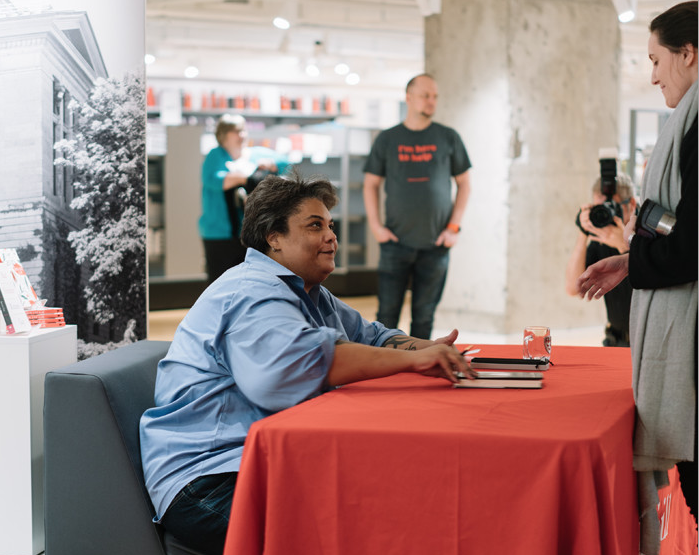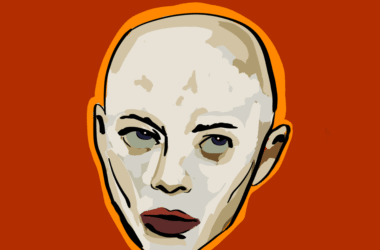Cultural critic and best-selling author Dr. Roxane Gay delivered the 64th annual Beatty Memorial Lecture on Oct. 11 to a rapt audience in Pollack Hall. The sold-out lecture drew attendees of various backgrounds, from students to alumni and faculty, all eager to hear Gay’s thoughts on the #MeToo movement, contemporary feminism, and representation. Since its inauguration by chancellor Sir Edward Beatty in 1954, the lecture series has hosted revolutionary thinkers, including Jane Goodall, Mikhail Gorbachev, and Oliver Sacks. Speaking to a crowd of nearly 600, Gay led what managed to feel like an intimate discussion on feminism and current events with her characteristic humour, authenticity, and candour.
At this year’s lecture, “Difficult Women, Bad Feminists, and Unruly Bodies,” moderated by Nantali Indongo, host of CBC Montreal’s radio program The Bridge, Gay offered reflections on the progress of the #MeToo movement. Situating contemporary debates within historical contexts, Gay described the initial optimism that the campaign inspired.
“For once, it seemed that women may not only be heard, but believed,” Gaysaid. “Justice felt like a real tangible thing, rather than a vague illusory ideal.”
However, despite the apparent cultural shift instigated by #MeToo, Gay remains skeptical of the movement’s concrete implications.
“This past year, as #MeToo has risen to cultural prominence, we have seen that necessary change can be excruciatingly slow, and that can be infuriating,” Gay said.
Gay articulately acknowledged the continued difficulties survivors face, particularly those who are femme-identifying, when coming forward with accusations of sexual violence. Citing the momentum of Judge Brett Kavanaugh’s confirmation to the United States Supreme Court, she couched hope with provocation that more work is required.
“We talk about resistance, when what we actually need is a revolution,” Gay said. “It has been a year of #MeToo, a year of reckoning. I feel like I am supposed to offer up an uplifting message about how far we have come when really we have not come far at all [….] It has been a year of #MeToo, but it has also been more than a decade.”
The work Gay described has already begun on campus at McGill. In Spring 2018, students, encouraged by the #MeToo movement, signed an open letter to the administration demanding an external investigator assigned to cases of sexual violence. When asked by The McGill Tribune how universities can better protect these survivors of sexual violence, Gay responded that more institutions should put support structures in place to protect those who have experienced abuse, validating the work of these student activists.
“I think that [universities] can do more in terms of expelling rapists, because you shouldn’t have to go to school with the person who raped you,” Gay said.
While Gay says that further action is necessary for cultural revolution, there is cause for survivors and their allies to feel optimistic. In her concluding remarks, Gay underscored that, over the past year, #MeToo has amplified survivors’ voices and activists’ demands for change.
“As we move forward, we need to figure out how to hold this space that #MeToo has made for solidarity and empathy while working to create a culture where someday, this space will not be needed,” Gay said. “That, if anything, is what I hope for.”







